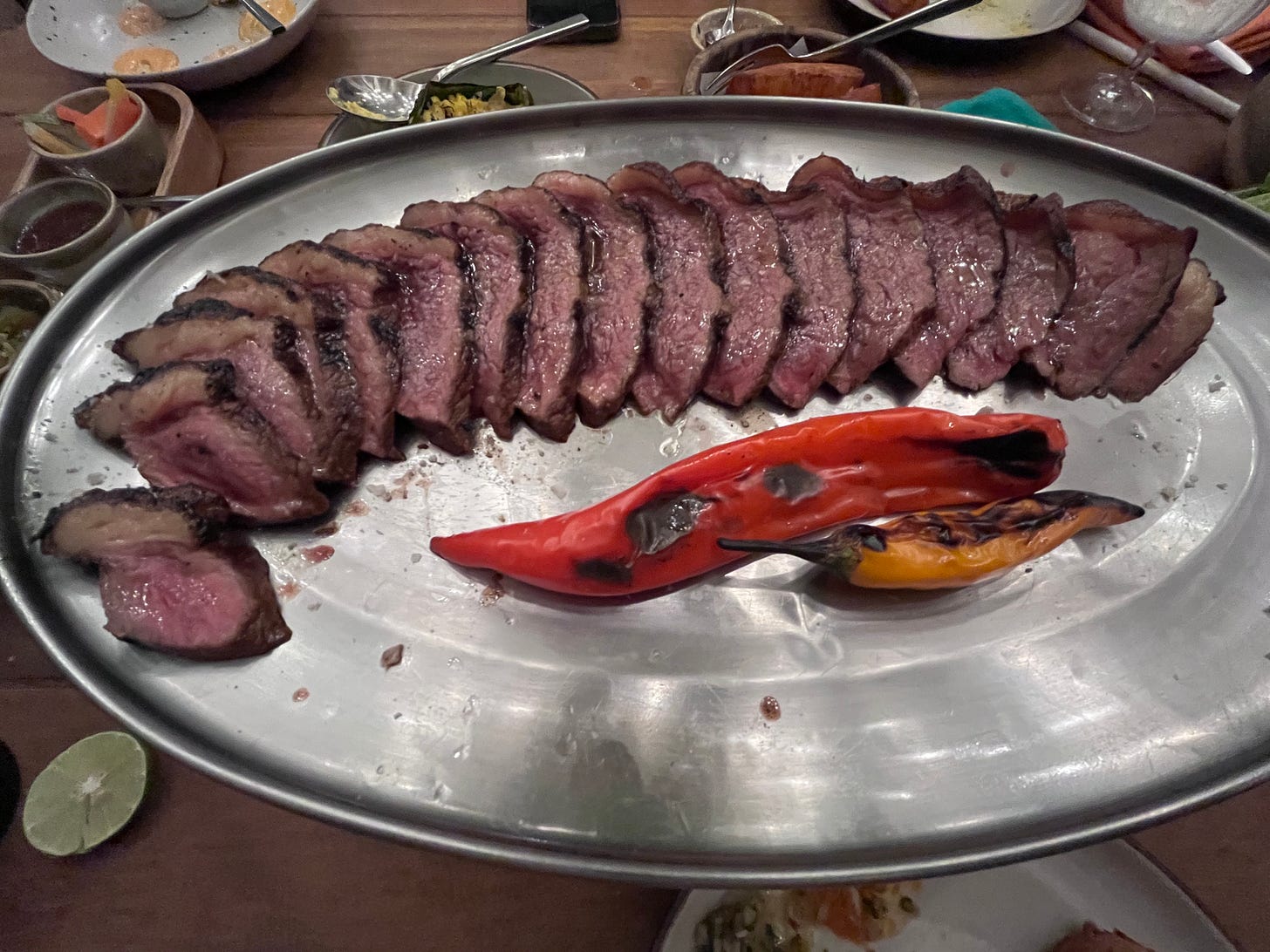Hello from Hua Hin, the late Thai king’s seaside resort town of choice, now replete with Thai holidaymakers, obnoxiously rude PRC and HK SAR package tour groups, and western retirees contributing to what I call the youth-and-uterus-barter-for-fat-pensions economy so unique to this part of Southeast Asia.
Here are some notes, in no particular order:
The railway station is newly renovated and very, very charming. Decommissioned train cabins have been repurposed as public libraries, how cute!
The sea is nothing to shout about and the air quality is variable.
Accommodation ranges from global chains such as Dusit to questionable hostels to charming guest houses, with no discernible zoning.
Seafood is plentiful as are kelong (beachfront buildings on stilts) restaurants hawking the catch of the day. The grilled squid was exceptionally fresh.
Highlight of the trip was to visit a Bangkok-based friend and make good on a promise to visit Chef Andre’s Nómada open-fire grille restaurant on the beach. I am happy to report that while the 250g picanha defeated me, the pisco sours mixed by Chef himself more than soothed my ageing stomach’s diminishing capacity.
I hadn’t appreciated how unbearable the heat wave would be, even for tropical kids born and raised in the region. We walked for 120m at 2pm and were ready to throw hands at each other. Forget global warming, this is global roasting.
Monsoon Valley Vineyards prove that you can grow grapes and make wine in this part of the world. Have I mentioned that the vineyard adjoins an elephant sanctuary? ❤️
Hua Hin is very, very sleepy but very, very charming, and is just the right distance from a metropolis. It goes onto our list of possible places we may retire to!
Until next week, dear readers!









Retiree discovery. UGH!! Then there’s the magic of public libraries and the discoveries they bring especially for children. My hero Gough Whitlam announced the Public Lending Right scheme on 13 May 1974, so that Australian writers, illustrators and creatives would be compensated for loss of income from the use of their work in public lending libraries. This was a policy which led to libraries becoming literary centres of excellence.